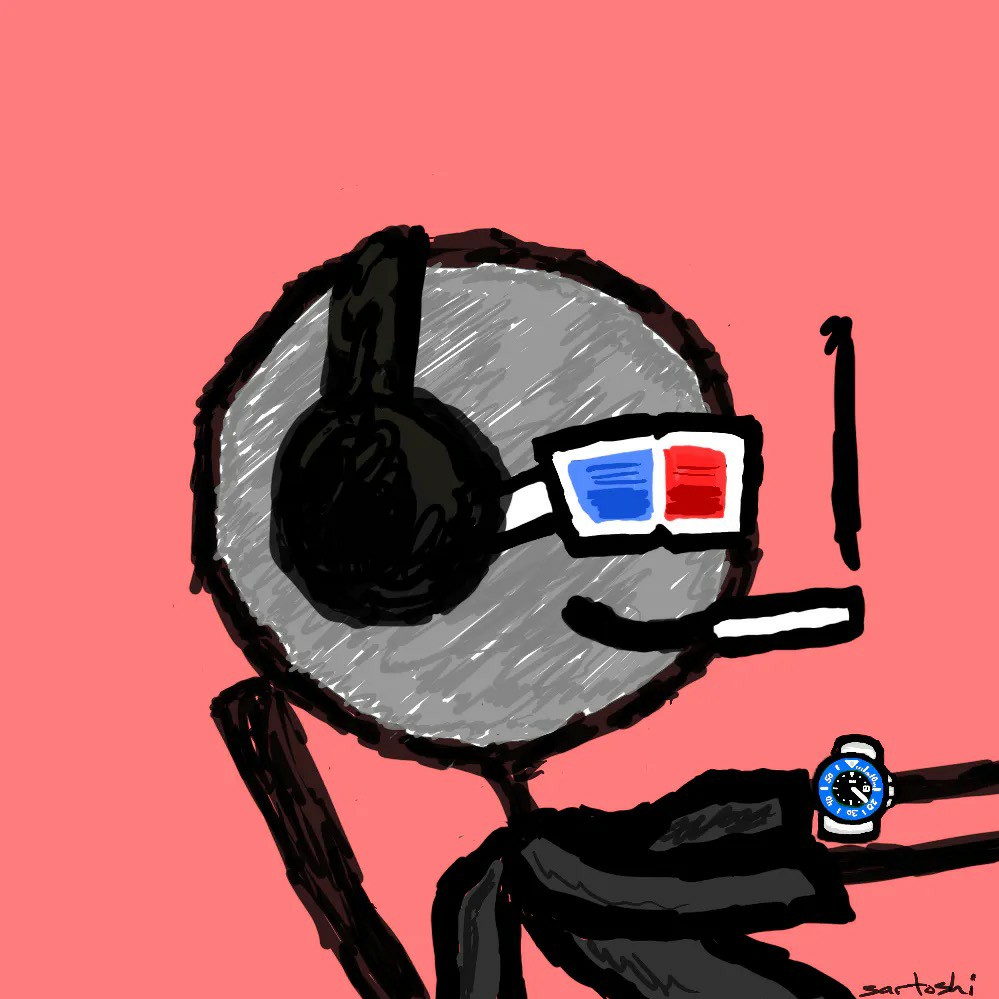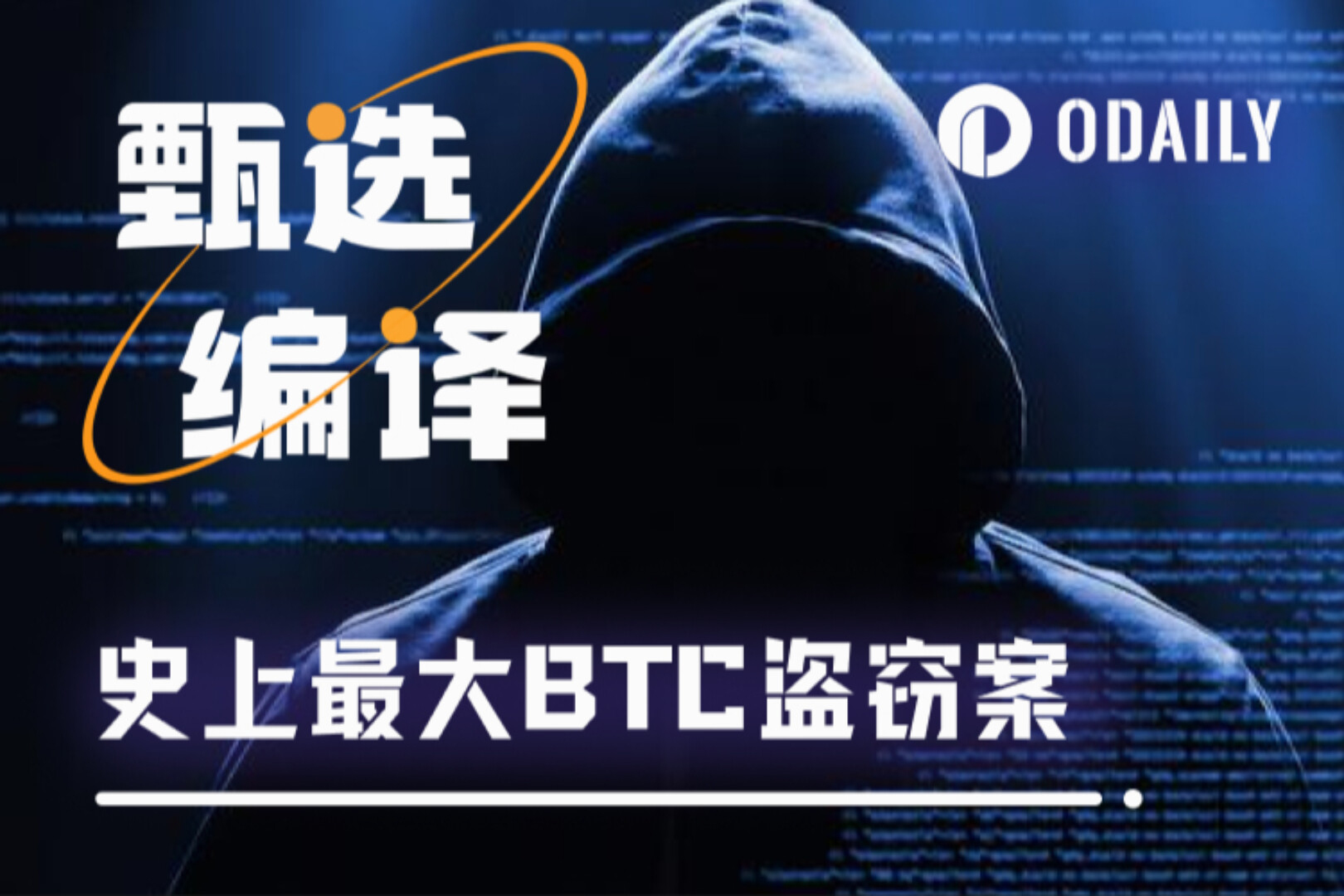Original | Odaily Planet Daily ( @OdailyChina )
Author|Azuma ( @azuma_eth )
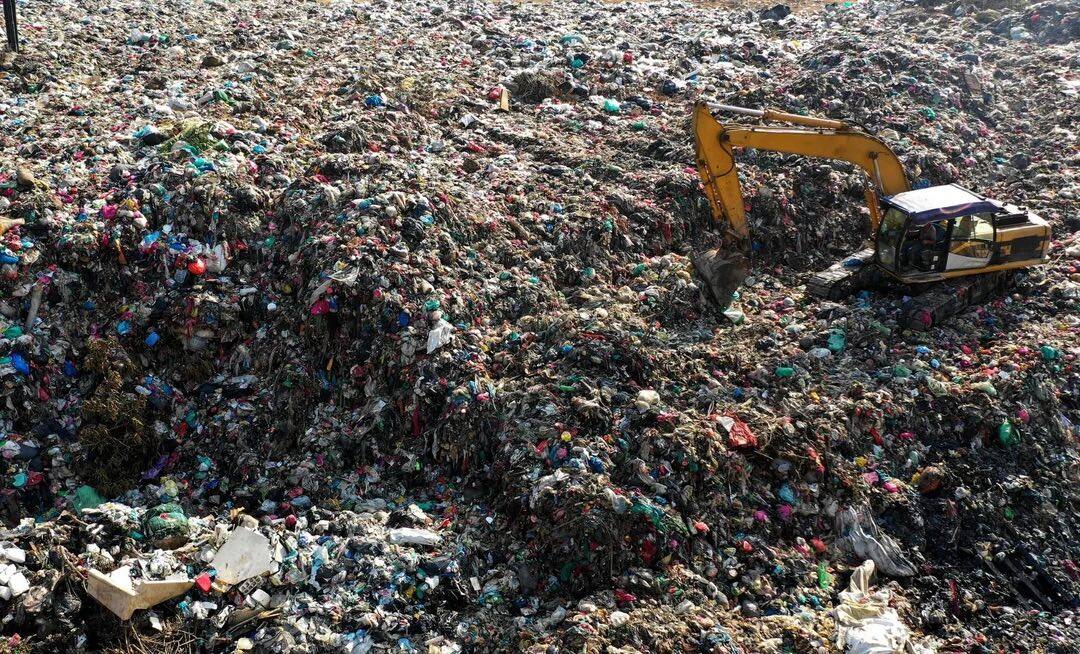
After a 12-year search, British man James Howells has decided to give up the search for a discarded hard drive containing 8,000 BTC (about $920 million at $115,000 per hard drive).
- Odaily Planet Daily Note: Regarding the specific number of lost BTC, although early British media reports all said 7,500, later media reports and Howells' description all said 8,000, so the data in this article will be based on this.
Accidental loss of 8,000 BTC
James Howells was born in Newport, Wales in the 1980s. Influenced by his mother who worked in microchip production, Howells was exposed to computer technology at an early age. He became a frequent Internet user as a teenager, started assembling computers at the age of 13, and eventually became a computer engineer.
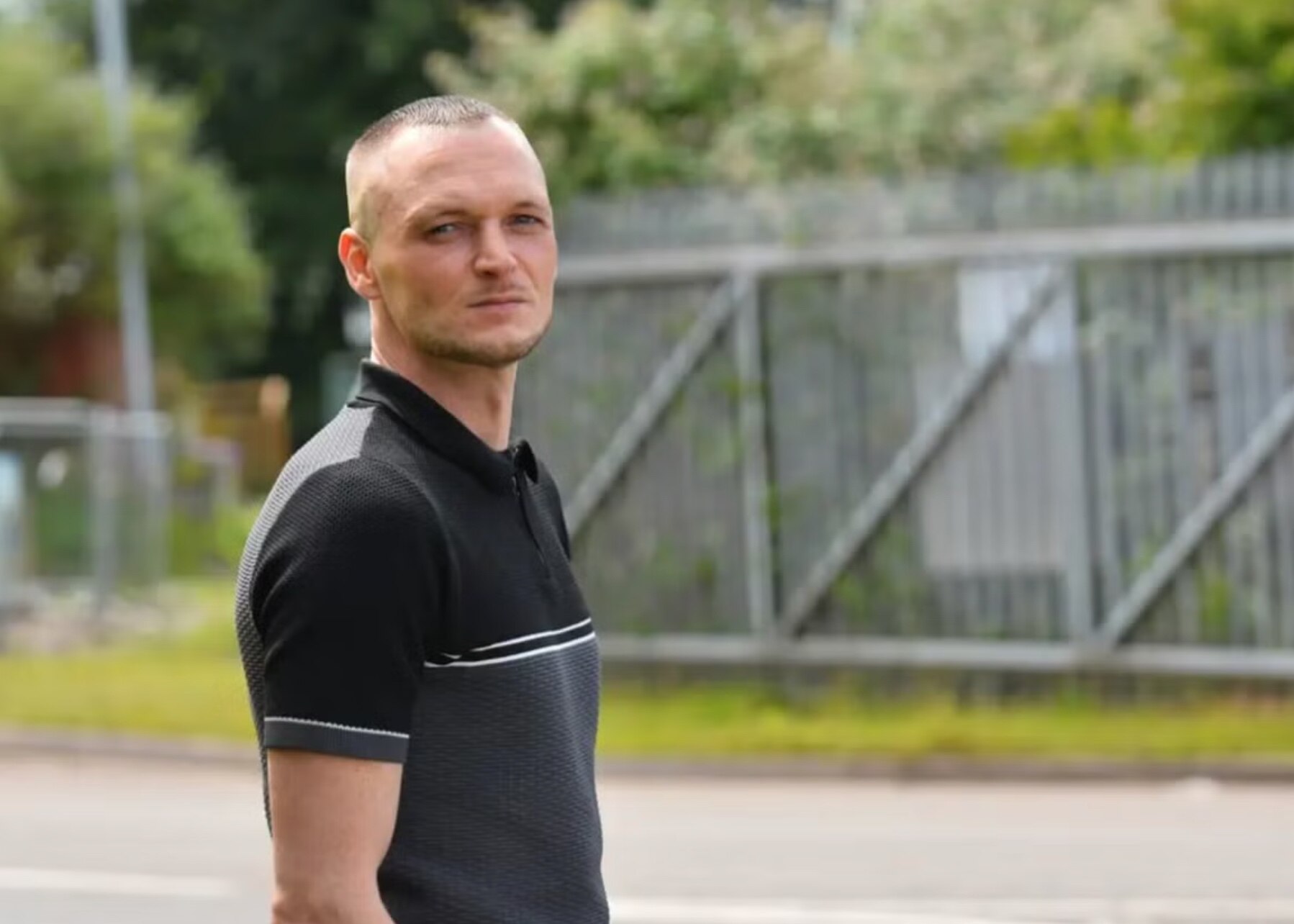
Howells was first introduced to Bitcoin in late 2008. On February 15, 2009, he began mining Bitcoin using a Dell XPS laptop. The Daily Telegraph identified him as one of the earliest miners on the Bitcoin network, while The New Yorker noted that there were only five miners on the entire network at the time of his participation.
However, Howells' mining work did not last long because his girlfriend kept complaining that the laptop was too noisy and the equipment was too hot when mining... In 2010, Howells accidentally spilled lemonade on his computer, and the computer broke down, so he disassembled the machine and took out the parts. Most of the parts were thrown away or sold, and the hard drive containing the private key information of 8,000 BTC was left in a drawer.
Howells mistakenly disposed of the hard drive as trash between June 20 and August 10, 2013. Howells later claimed that his ex-girlfriend, Hafina Eddy-Evans, had taken the trash containing the hard drive to the landfill. However, Eddy-Evans denied any wrongdoing, claiming that Howells had pleaded with her to dispose of the waste. Howells, however, claimed that he "subconsciously" believed she was responsible.
“I didn’t pay much attention to Bitcoin at the time because I was distracted,” Howells later recalled. “Then I had kids and started renovating my house, and I forgot all about Bitcoin until it started showing up in the news again.”
In November 2013, The Guardian reported that the hard drive was speculated to be buried approximately 0.9-1.5 meters below the Newport Docksway landfill, and Howells admitted in an interview at the time that the BTC may have been discarded forever.
Newport City Council later stated that the hard drive may be buried under 25,000 cubic meters (approximately 110,000 to 200,000 tons) of waste. The former landfill manager confirmed that it was located in a 15,000-ton landfill area called Cell-2 (the area where it was deposited from August to November 2013), with a total landfill capacity of 1.4 million tons.
The price of the currency has appreciated, and the search has been hindered.
As the price of BTC continued to rise, Howells began to try to search for the hard drive, but was repeatedly rejected by the local council for various reasons.
In December 2017, Newport City Council rejected Howells' landfill search application, citing cost, environmental impact, equipment corrosion risks, and the potential for illegal "gold rush" activity. In January 2021, Howells proposed donating 25% of the bitcoins (then worth £52.5 million) to the local 316,000 residents (£175 per person), but the council again rejected the proposal, citing a violation of licensing regulations.
A spokesperson for Newport City Council told CNN that the local government department has been contacted several times since 2013, asking if it could assist in recovering the hard drive allegedly containing Bitcoin. The council did not reject the offer, but was not allowed to excavate the site. "The council told Mr. Howells several times that excavating the landfill was impossible under our licensing regulations, and that the excavation itself would have a huge environmental impact on the surrounding area. The cost of excavating the landfill, storing and processing the waste could be as high as millions of pounds, and there is no guarantee that the hard drive will be found or that it will still be working properly."
However, Howells insisted that the hard drive could still work normally under the protection of the protective shell and the anti-corrosion cobalt layer of the glass disk - after all, as the value of these BTCs soared like a rocket, no one could easily give up such a huge fortune.
In order to obtain the council's landfill access permit, Howells had developed several detailed plans to specifically address the council's concerns. During this period, a hedge fund was interested in funding Howells (the two parties agreed to split the profits 50% equally), planning to locate the hard drive through municipal waste records and have it handled by a professional data recovery team. Howells' budget for the 9 to 12 months of excavation work at the time was 5 million pounds. In August 2022, with the assistance of some venture capital funds (venture capital received 30% of the profits), Howells upgraded the search plan to use AI robotic arms to scan waste, deploy drones and Boston Dynamics robot dogs for security, and form an environmental team. The budget also increased to 10-11 million pounds.
In an effort to garner as much community support as possible and secure council search permission, Howells has proposed using the proceeds to develop a community-owned mining facility on the landfill, which would be powered by solar or wind energy.
On September 6, 2023, after a long delay in applying for the permit, Howells commissioned its legal team to issue an open letter to Newport City Council, announcing its intention to file a lawsuit. The letter demanded a halt to landfill construction, sought £446 million in damages, and requested a judicial review of the council's refusal to open the site. Two months later, its legal team wrote again to the council, requesting site access permission before taking the case to court.
As of October 2024, the Bitcoin on the hard drive was valued at $750 million. Howells ultimately sued the council for £495 million, but the council argued that ownership of the hard drive vested in the municipality under waste disposal regulations.
On January 9, 2025, the judge ultimately dismissed Howells' lawsuit, finding it "lacking probable cause" and "without prospects of success." Howells expressed his "extreme disappointment" to the media, but also revealed his upcoming plan to issue a new cryptocurrency anchored by the irrecoverable Bitcoin.
Searching without results, finding another way
Unable to obtain parliamentary permission, Howells ultimately abandoned the search but opted for another potential path.
As early as May of this year, Howells disclosed on his personal account X his intention to tokenize 21% of the 8,000 BTC, with the goal of launching it on October 1st during TOKEN 2049 Singapore, with plans to raise $75 million... However, Howells did not mention this again on his personal social media channels in the following months, and it seems that the plan has been aborted . After all, everyone knows that the BTC is likely irrecoverable, and it is a bit embarrassing to want to raise $75 million.
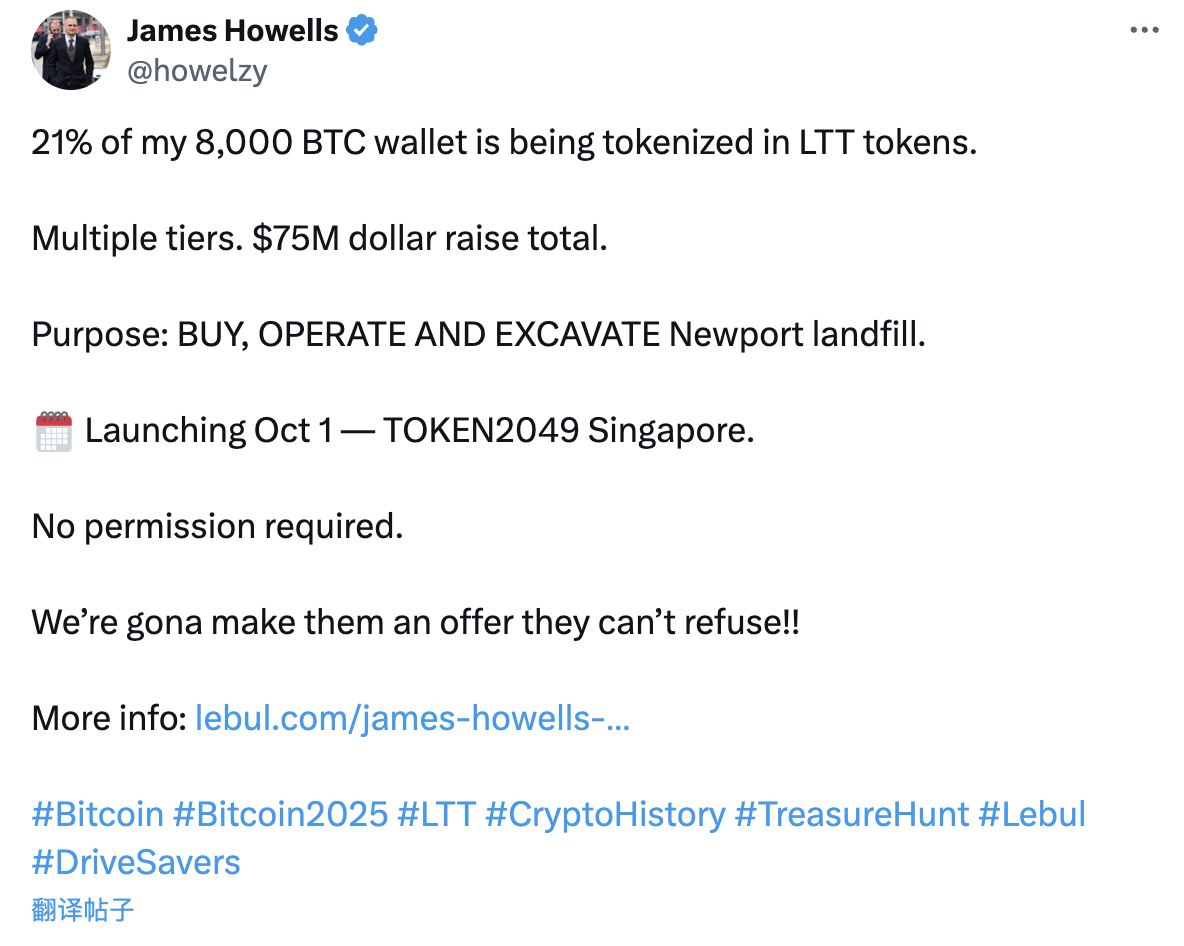
This morning, Howells revealed a new plan for tokenizing the BTC, with plans to issue 800 billion Ceiniog Coins (INI). Targeted for launch by the end of the year, the token will be built on the Bitcoin network, supported by OP_RETURN, and integrated with Stacks, Runes, and Ordinals. Each INI will be pegged to the value of one satoshi in the BTC.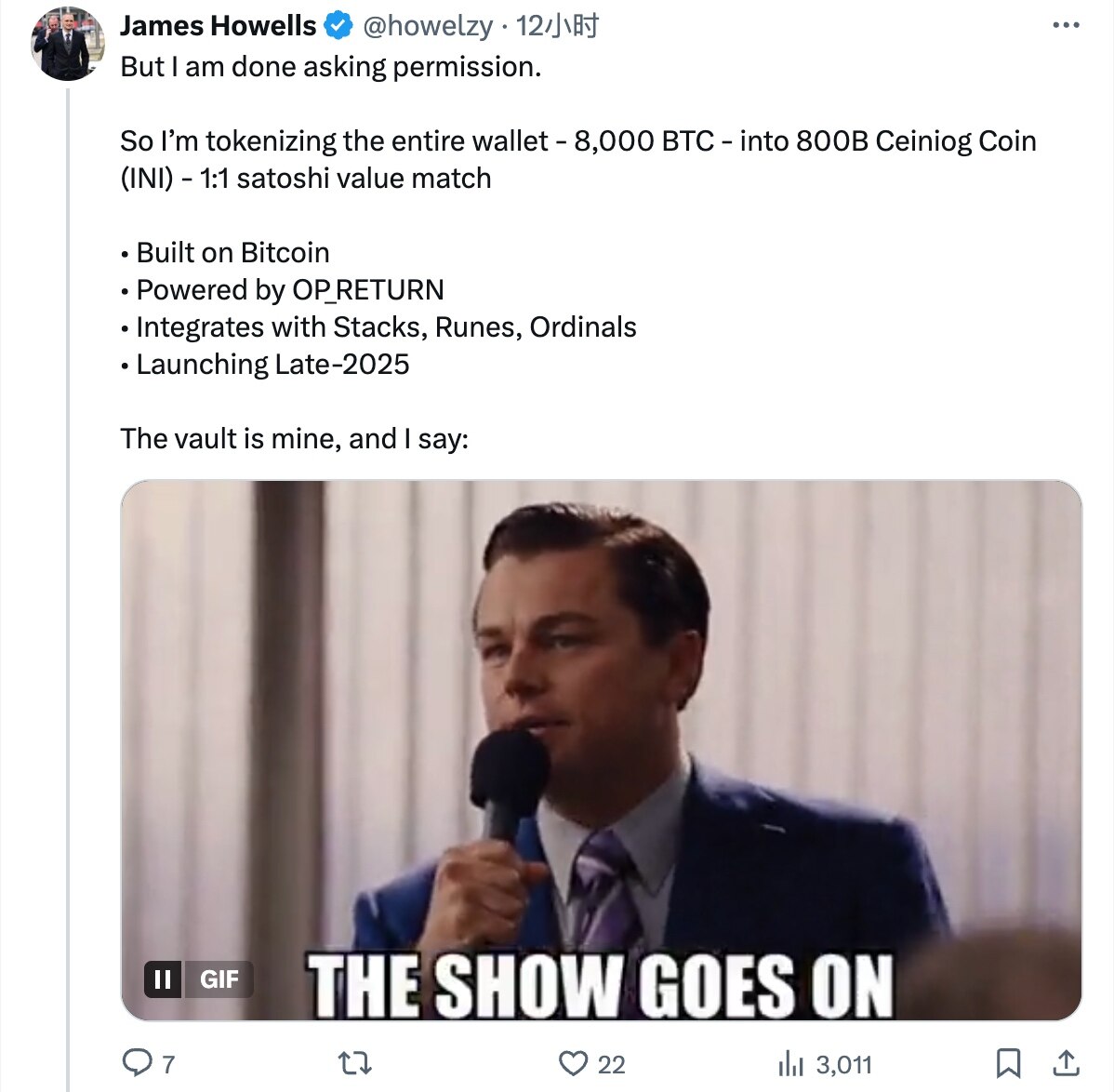
Howells concluded with a rather impassioned message: "To all the senior and distinguished gatekeepers who have been blocking me for over a decade: You can block the gates! You can control the courts! But you can't stop the blockchain! Crypto has won!"
However, considering the fact that the hard drive cannot be recovered, no matter how beautiful Howells' description is, INI actually has no assets to support it, and the future of the plan remains in question.
Cryptocurrency may win, but Howells' coin issuance probably won't.
- 核心观点:英国男子放弃搜寻丢失的8000 BTC硬盘。
- 关键要素:
- 硬盘含8000 BTC,现价约9.2亿美元。
- 多次搜寻被拒,诉讼失败。
- 计划发行代币化资产INI。
- 市场影响:代币化尝试或引发市场争议。
- 时效性标注:短期影响。


